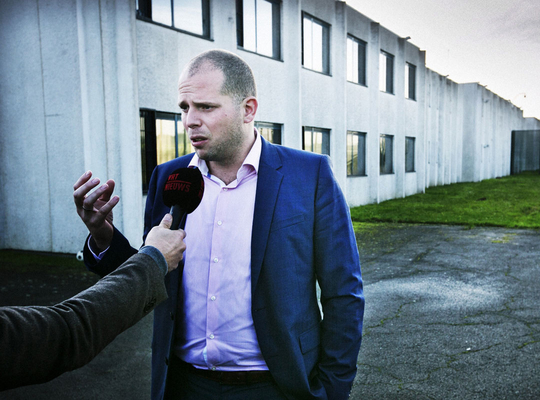You are here
Asylum and Migration also investing more in security

Part of the 300 million euros that the Belgian government recently reserved for the fight against terror will go to Asylum and Migration. "Among others, the extra resources should serve to improve our infrastructure, especially when it comes to better surveillance of access to asylum centres," says State Secretary for Asylum and Migration Theo Francken. In addition, he invests in extra staff for the judicial division of the Immigration Office (DVZ). Within the Immigration Office, a separate Radicalisation Coordination Unit will be instated. A liaison officer must then work on improving cooperation between Fedasil and the police.
In order to increase surveillance at the entrance of asylum centres, cameras and revolving doors will be installed. "In the context of the fight against radicalism, it is important to know who exactly goes in and out," states Theo Francken.
Determining residence status
The judicial section of the Immigration Office will be joined by ten new staff members. They will assist police during activities on the premises. "It concerns officers who are specialised in immigration law and document recognition," Theo Francken clarifies. "They can then quickly make a statement on the residence status of the refugee, allowing the right measures to be taken swiftly there and then." The new staff not only functions as a contact point for the local and federal police, but also for the labour inspectorate. They can, for example, also help tackle undeclared work and human trafficking.
Raising the radicalism alarm
Within the Immigration Office, a Radicalism Coordination Unit is also being established. It will comprise five people who will focus on the screening and follow-up of individual files. "This concerns withdrawing the residence permits of Syrian fighters or hate preachers," according to Theo Francken. "But they will also deal with signs of radicalism in the shelters and ensure that such information is more effectively transmitted to the authorised government departments and OCAD (CUTA)."
Finally, Fedasil will acquire a liaison officer who must ensure exchange of information and collaboration between the own shelter structures and the local police force. "That contact will function as a first point of contact when signs of radicalism are detected in a shelter," the Secretary of State concludes.

